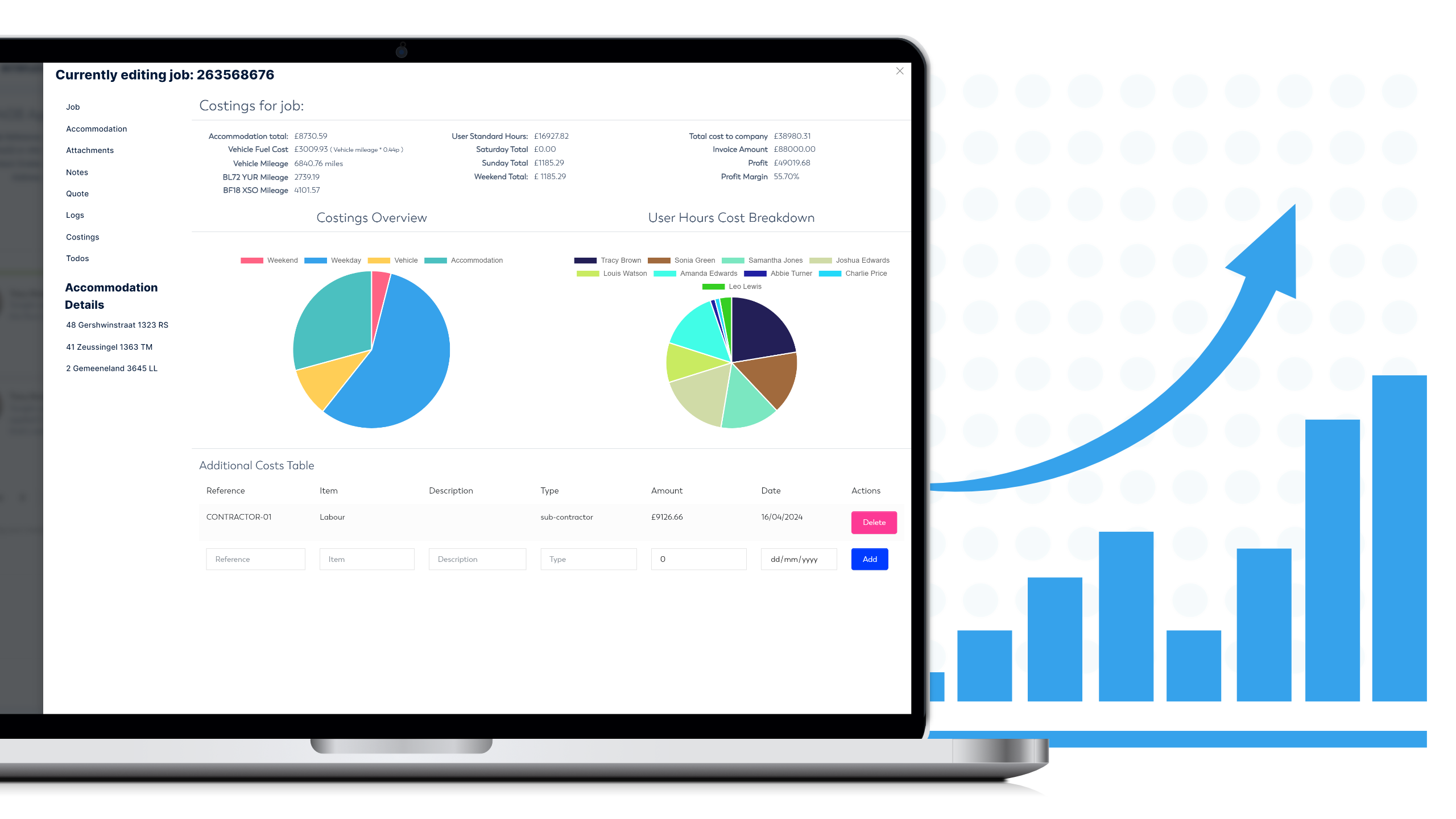
The art of effective Job Scheduling
In the intricate tapestry of business operations, few threads are as essential as job scheduling. Whether you're managing a fleet of service vehicles or coordinating project works for a team of professional tradesmen, efficient job scheduling is the backbone of productivity and customer satisfaction. However, mastering this art requires more than just juggling calendars and filling time slots, it demands a strategic approach that maximises efficiency and minimises disruptions. Let's explore the importance of effective job scheduling and how businesses can optimise their scheduling practices for success.
- Time Optimisation: Time is a precious resource in any business, effective job scheduling is all about making the most of it. When strategically arranging jobs, appointments and tasks, correct management can reduce downtime and ensure that every minute counts. Whether it's optimising routes for service calls or scheduling appointments back-to-back to reduce idle time, savvy job scheduling allows businesses to make the most efficient use of their resources.
- Resource Allocation: Correct resource allocation is key to meeting demand and delivering exceptional service. Job scheduling involves more than just assigning tasks, it's about allocating the right resources to the right jobs at the right time. This could involve matching skilled technicians to specific tasks or ensuring that service vehicles are deployed where they're needed most. By carefully managing resources through effective job scheduling, you can improve productivity and customer satisfaction while reducing waste.
- Customer Satisfaction: In today's competitive market, customer satisfaction cannot be ignored. Effective job scheduling plays a crucial role in meeting, and exceeding, customer expectations. By offering effective job timelines you will enhance communication with your clients and the overall customer experience. A well-executed scheduling strategy demonstrates professionalism and reliability.
- Communication and Coordination: Clear communication and coordination are essential components of successful job scheduling. Whether it's coordinating schedules among team members or keeping customers informed of attendance details, effective communication is key to avoiding confusion and avoiding disruptions. By establishing clear channels of communication and providing timely updates, businesses can ensure that everyone is on the same page and that everything proceeds smoothly.
- Adaptability: Flexibility is fundamental towards effective job scheduling. Circumstances can change rapidly, and businesses must be prepared to adapt on the fly. Whether it's accommodating last-minute changes or rescheduling existing work due to unforeseen circumstances, the ability to pivot quickly is essential for maintaining efficiency and customer satisfaction. By building flexibility into their scheduling processes, businesses can better respond to changing needs and unexpected challenges.
Experience Smarter Field Service Management
Ready to see how Intrflex can transform your workflow? Book a free demo and discover how easy it is to manage jobs, teams, and tasks from a single powerful platform.
Book a demoSummary
In conclusion, effective job scheduling is a cornerstone of successful business operations. By optimising your scheduling practices, you can maximise efficiency, improve resource utilisation, and enhance the overall customer experience. Whether it's through strategic time management, careful resource allocation, or clear communication, mastering the art of job scheduling is essential for thriving in today's competitive market.
Ready to take your scheduling game to the next level? Explore the possibilities with Intrflex and discover how our job scheduling solutions can help streamline your operations and drive success.








